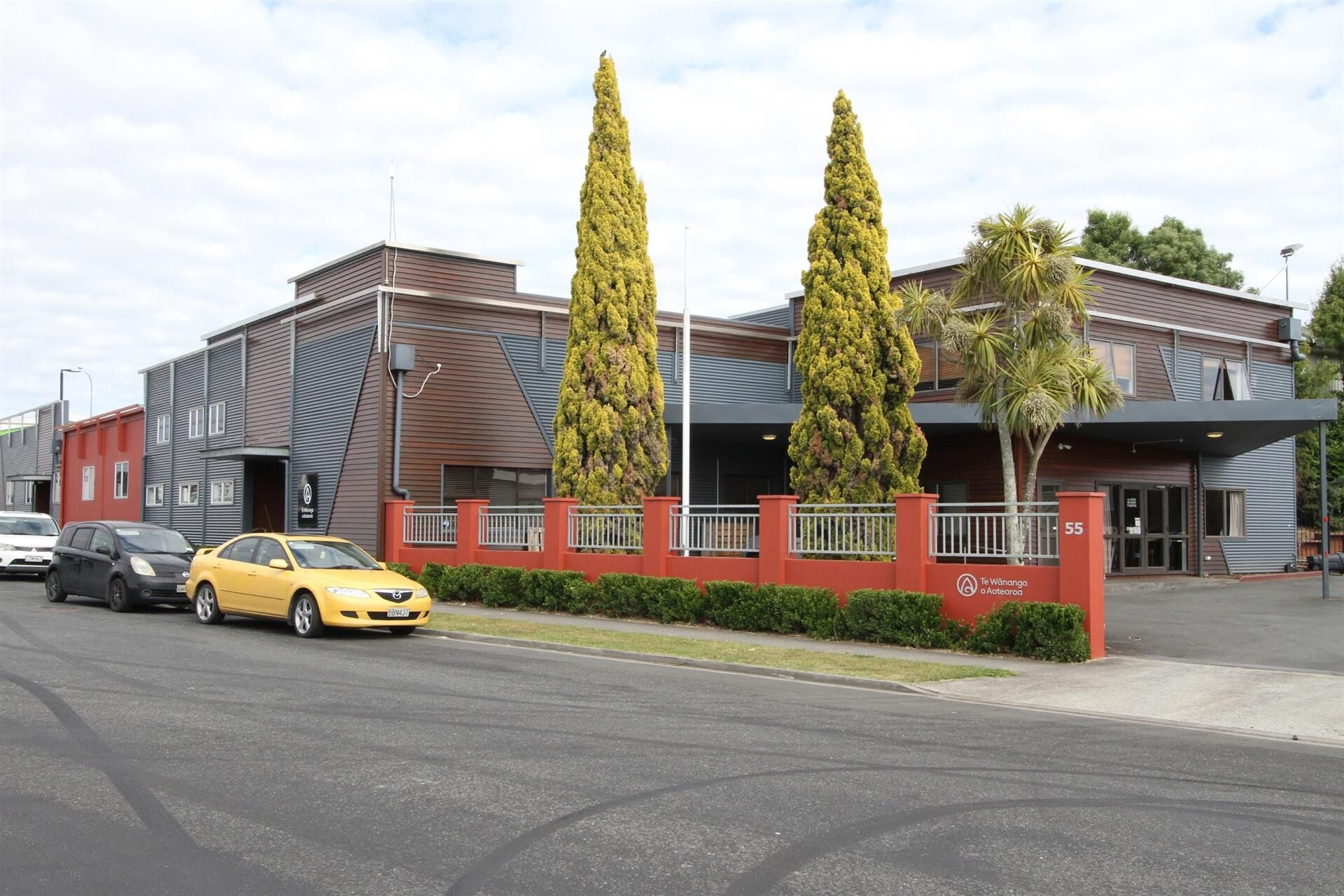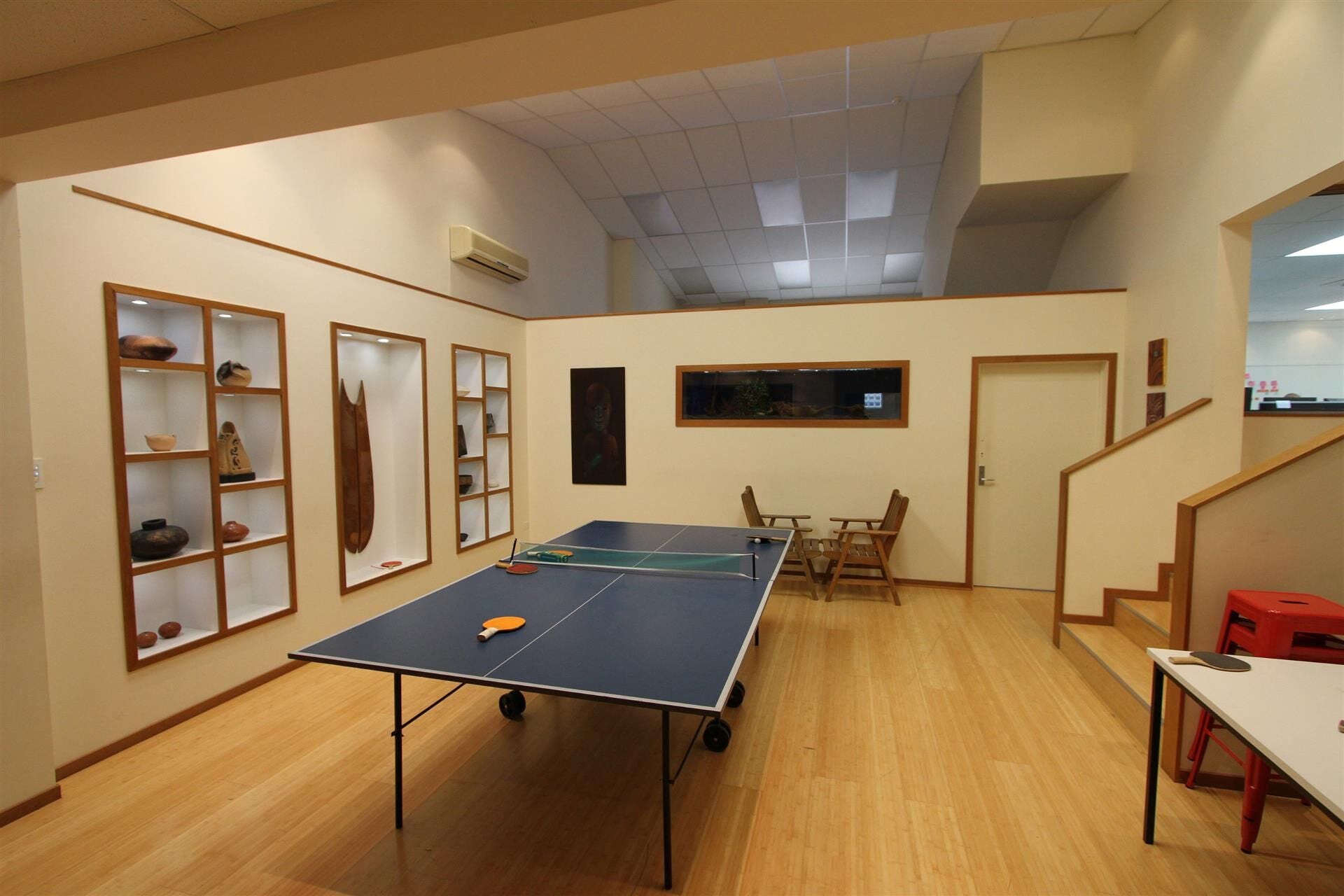Former distance learning organisation’s headquarters placed on the market for sale

The land and building which formerly housed the headquarters for a distance learning provider’s head offices have been placed on the market for sale.
The property at 55 Rickit Road in the South Waikato township of Te Awamutu consists of a 1,466 square metre two-storey administrative office premises previously used by the organisation known as Mahi Ora.
The education provider was established in 2000 to provide free home-based distance learning courses predominantly servicing the needs of the Maori population with the aim of securing employment.
The successful Mahi Ora programmes enrolled more than 50,000 participants within four years of opening – at one stage signing up some 400 new students a month. Mahi Ora eventually went on to become part of the bigger Te Wananga o Aotearoa.
Now the 1,740 square metres of land and vacant office building at 55 Rickit Road in Te Awamutu are now being marketed for sale at by tender through Bayleys Hamilton, with tenders closing on June 25. Salespeople Alex ten Hove and Mike Swanson said the commercially-configured premises had a new building standards rating of 76 percent.
The freehold land at 55 Rickit Road is zoned commercial (8A) under the Waipa District Council plan. Mr ten Hove said the building featured a mix of partitioned offices, meeting rooms, open-plan work environments, along with staff bathroom and lunchroom amenities.
“The two levels are connected by a central lift and a stairwell, with a reception lobby area on the lower floor accessed off Rickit Road. The core of building was constructed in the 1950s and was significantly expanded and refurbished in the 1980s. The standard of space is above average for similar comparable properties in Te Awamutu,” he said.
“Part of the building’s interior fitout has been refurbished to a public showroom and exhibition space quality to display cultural artworks and artefacts. The building interior comprises several independent office spaces – including 930 square metres on the ground level, 472 square metres of office space on the mezzanine floor, 64 square metres of storage area on the mezzanine level, and the 27 square metre reception area.
“The Rickit Road property has car parking for eight vehicles around its periphery, with additional unmetered street parking immediately outside the premises.
“However, a large sealed courtyard on one corner of the property has been utilised as a basketball court and outdoor seating space, and it would be relatively easy for any new owner to incorporate this quadrant onto the adjacent car parking space to substantially increase the number of vehicle parks within the property,” Mr ten Hove said.
The building is constructed on reinforced concrete foundations, with concrete and steel frames and a metal roof.
Mr Swanson said the now vacant offices were in a state which could be re-occupied immediately, or could be refurbished and reconfigured to sustain any multitude of new layouts – even allowing for the potential of operating a multi-tenanted or shared workspace office complex.
“With the changes now emerging through the New Zealand workplace and economy as a result of Covid-19 - and the impacts those changes are already having on the commercial office environment - the development of a co-working office amenity for example would be a first for Te Awamutu on this scale,” Mr Swanson said.
“Such a reconfiguration of workspace would also allow a small-business owner-occupier who only requires say 30 – 50-square metres of space for example, to also operate from the location – utilising the shared reception service. Under this dynamic, we would expect space to lease for between $165 - $170 per square metre.”
The shared office space/co-working real estate evolution has been growing from small beginnings in New Zealand over the past decade. In the past four years the market has recorded a 224 percent increase in the conversion and availability of co-working office space in Auckland – up from 14,800 square metres in 2016 to some 48,000 square metres now.
“A co-working location at 55 Rickit Road could also become a venue where mobile, IT-reliant staff operating in the central and southern Waikato domain could remotely operate their business activities from,” Mr Swanson said.
“Concurrently, it also foreseeable that major corporates could look to take advantage of a shared space amenity in a location which would allow their remotely-working employees to service the regions from a dedicated hot-desking office space.”
